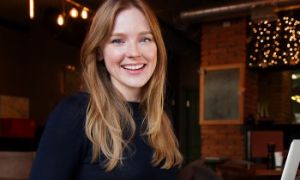

As an Early Childhood Educator, it enables you to acknowledge and embrace conversations around disability and inclusion with children. The following article provides strategies to discuss inclusion and disability with children.
As the words indicate, Open-ended questions have no right or wrong answers and thus cannot be answered with a simple, ‘yes’ or ‘no’. Open-ended questions figure in several of the pedagogical practices outlined in the EYLF, like ‘being responsive to children, ‘learning through play and most of all, ‘intentional teaching’. The following article provides the major benefits of using open-ended questions in the early childhood education context.
Inquiry-based learning is an experiential educational approach in which learners are encouraged to explore, question and arrive at their own conclusions. Asking questions is an important aspect of an inquiry-based approach but toddlers and very young children may not have the language to frame and ask such questions. Here are then a few tips on planning inquiry-based experiences for toddlers.
Tremendous advances in brain imaging technology over the last ten years have led to a quantum leap in brain research. Among the research areas most studied by scientists is the effect of musical experiences on the brain development of children. The following article provides information on How Music Enriches Brain Development In Children, Playing Music Vs Listening To Music, Benefits Of Music and more.
Among the important guiding principles of the National Quality Framework is ‘Australia’s Aboriginal and Torres Strait Islander cultures are valued. The following article provides information on recognising and valuing Aboriginal and Torres Strait Islander cultures through early childhood services through the display of the flags.
“Agency” this word is very familiar to the parents and in early childhood care. Agency in childhood indicates the organisation is able to have decisions that will affect and influences the child and also the child has the right to take a decision and is also capable of initiating learning of their own choice and for the betterment of them. The following article provides information on the Question and Strategies To Show If Agency Is Promoted Within The Service and more.
Among the two most important resources for services to build partnerships with new families are enrolment and orientation. The following article shows guidelines on using Enrolment and Orientation processes to collaborate with families so that children’s well-being and learning have the best chances of thriving.
Unstructured play materials refer to those play materials whose uses are not predetermined by educators. Also known as of heuristic play materials, the scope for play with unstructured materials is thus unlimited, allowing children to develop agency, skills and imagination. The following article provides information on what types of unstructured play materials can be included, how to store play materials and how to facilitate children's play.
Belonging, Being and Becoming: The EYLF lists ‘High Expectations’ as one of five Principles that underpin practice. This is based on the premise that all children come with the potential to learn and unique sets of abilities which can be best realized when educators consistently have high expectations for them. The following article provides strategies on how Educators achieve best practices so that each child can realise their potential.
Floorbook is a documentation approach that uses a large book with blank pages for children to record different aspects of their learning in small groups or as a whole group. The following article provides information on the Features Of A Floorbook, Child Centred Approach, How Educators Can Use Floorbooks and more.
 Here is the list of the EYLF Learning Outcomes that you can use as a guide or reference for your documentation and planning. The EYLF… Read More
Here is the list of the EYLF Learning Outcomes that you can use as a guide or reference for your documentation and planning. The EYLF… Read More
 The EYLF is a guide which consists of Principles, Practices and 5 main Learning Outcomes along with each of their sub outcomes, based on identity,… Read More
The EYLF is a guide which consists of Principles, Practices and 5 main Learning Outcomes along with each of their sub outcomes, based on identity,… Read More
 This is a guide on How to Write a Learning Story. It provides information on What Is A Learning Story, Writing A Learning Story, Sample… Read More
This is a guide on How to Write a Learning Story. It provides information on What Is A Learning Story, Writing A Learning Story, Sample… Read More
 One of the most important types of documentation methods that educators needs to be familiar with are “observations”. Observations are crucial for all early childhood… Read More
One of the most important types of documentation methods that educators needs to be familiar with are “observations”. Observations are crucial for all early childhood… Read More
 To support children achieve learning outcomes from the EYLF Framework, the following list gives educators examples of how to promote children's learning in each individual… Read More
To support children achieve learning outcomes from the EYLF Framework, the following list gives educators examples of how to promote children's learning in each individual… Read More
 Reflective practice is learning from everyday situations and issues and concerns that arise which form part of our daily routine while working in an early… Read More
Reflective practice is learning from everyday situations and issues and concerns that arise which form part of our daily routine while working in an early… Read More
 Within Australia, Programming and Planning is reflected and supported by the Early Years Learning Framework. Educators within early childhood settings, use the EYLF to guide… Read More
Within Australia, Programming and Planning is reflected and supported by the Early Years Learning Framework. Educators within early childhood settings, use the EYLF to guide… Read More
 When observing children, it's important that we use a range of different observation methods from running records, learning stories to photographs and work samples. Using… Read More
When observing children, it's important that we use a range of different observation methods from running records, learning stories to photographs and work samples. Using… Read More
 This is a guide for educators on what to observe under each sub learning outcome from the EYLF Framework, when a child is engaged in… Read More
This is a guide for educators on what to observe under each sub learning outcome from the EYLF Framework, when a child is engaged in… Read More
 The Early Years Learning Framework describes the curriculum as “all the interactions, experiences, activities, routines and events, planned and unplanned, that occur in an environment… Read More
The Early Years Learning Framework describes the curriculum as “all the interactions, experiences, activities, routines and events, planned and unplanned, that occur in an environment… Read More

Character traits are all the aspects of behaviour and attitudes that make up your personality...
See more...
In early childhood education, our relationships with families are foundational—but they’re not always easy to...
See more...
The Health and safety of children are among the prime concerns of early childhood services...
See more...© 2009-2025 Aussie Childcare Network Pty Ltd. All Rights Reserved.

